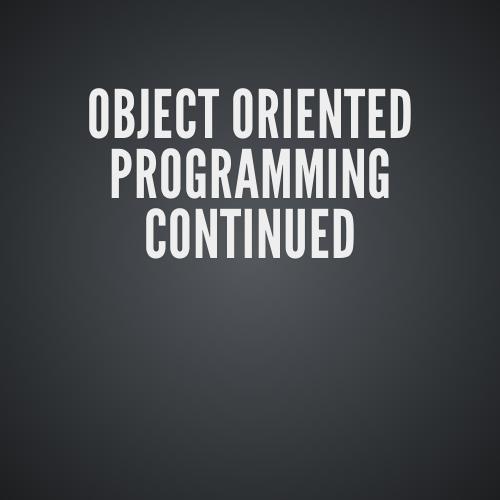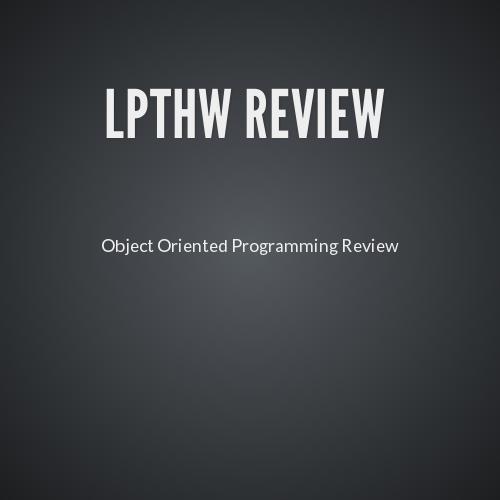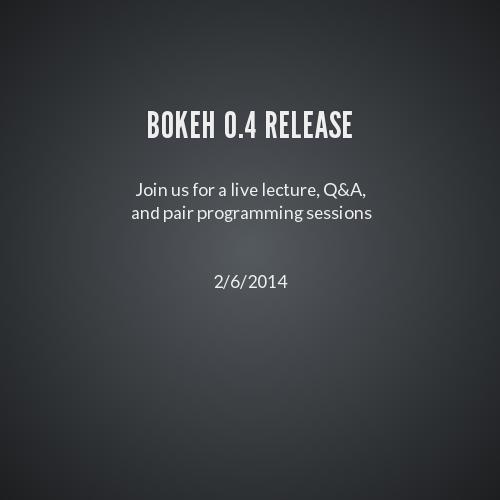LPTHW Exercises 35 - 39
While loops, Lists, Tuples, and Dictionaries
Review
- Boolean Expressions
- IF/ELSE Statements
- Lists
- For Loops
- List Indexing and slicing
Exiting a For Loop
We can abruptly exit a for loop or alter it's flow
with break and continue statements respectively
for i in range(10):if i == 2:continueelif i == 5:breakprint i
WHILE LOOPS
Hybrid of Conditional Statements (IF/ELSE and LOOPS)
while [boolean expression ==True]:
# execute this loop body
# over and over again
While loops are not used very often.
Typically implemented when we want to loop
an undefined number of times
Hybrid of Conditional Statements (IF/ELSE and LOOPS)
while [boolean expression ==True]:
# execute this loop body
# over and over again
While loops are not used very often.
Typically implemented when we want to loop
an undefined number of times
Extra info: List Mutability
Integers, Strings, and Booleans are immutable
This means that their value can't be changed
To update variables, values must be reassigned
a = "Some random string"a[0] = "z" ### This will fail because strings can't be changeda = "z" + a[1:] ### we must create a new string and re-assign to a
Lists, on the other hand, are mutable
Can be changed (items added, removed, changed, etc)
sort, append, remove, etc all change the actual list
Extra Info: Tuples
A very similar data type to Lists
A tuple is an ordered sequence of items
Instead of brackets, tuples are created with parentheses
We've seen tuples before with string interpolation
"This is %s an example of %s" % ("good", "tuples")my_sample_tuple = (1, "sample", 4, 9)
Difference with lists is that tuples are IMMUTABLE
Exercise 39: Dictionaries
Dictionaries are similar to Lists
They are mutable
Assignment and indexing is similar
They are NOT ordered
Instead they are lookup tables with keys and values
Each key is associated with a value
With the key, you "look up" that value
Exercise 39 Continued
chores = {"Monday": "rake yard", "Tuesday": "dentist appointment"}print chores["Monday"]# dictionaries have built-in functions, just like Listsprint chores.keys()print chores.items()for day, assignment in chores.items():print "On %s, I will %s" % (day, assignment)chores["Wednesday"] = "wash clothing"print choresthursday_chore = chores.get("Thursday", "I have nothing planned")print thursday_chore
Object Oriented Programming: classes and objects
By benjaminplesser
Object Oriented Programming: classes and objects
- 980



